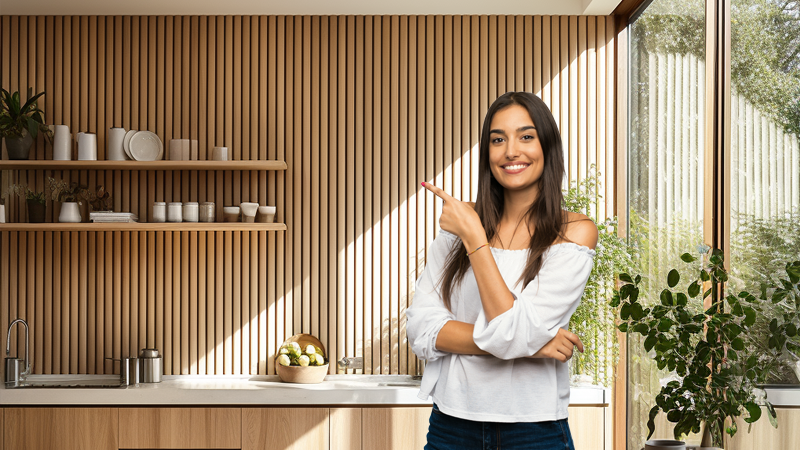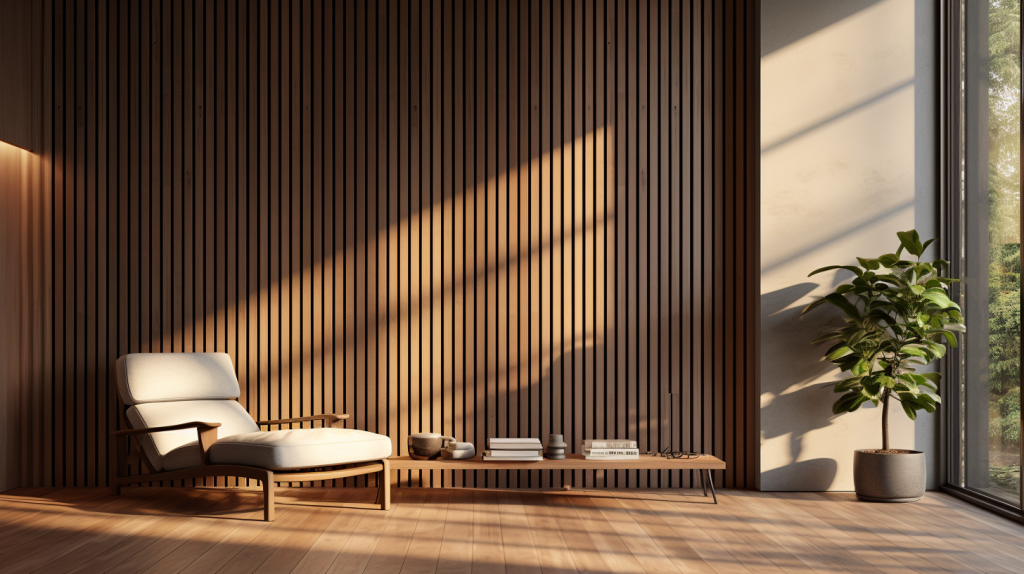The Psychology of Spaces: How Wood Panels Can Influence Mood
In the realm of interior design, the choice of materials can significantly impact not only the aesthetic appeal of a space but also the emotional well-being of its inhabitants. Wood paneling, with its rich texture, warmth, and natural beauty, has a profound ability to transform the ambiance of a room and, consequently, influence mood and emotions. This article delves into the psychological effects of incorporating wood panels into your living or working spaces, exploring how this timeless material can foster a sense of comfort, creativity, and connection to nature.
The Warmth of Wood: Comfort and Serenity
Wood, as a natural element, inherently brings warmth and comfort to any interior. Its presence in a room through wall paneling can evoke feelings of coziness and serenity, creating a welcoming atmosphere that encourages relaxation and stress reduction. The natural grains and colors of wood panels, such as those from oak or walnut, add depth and character to spaces, making them feel more grounded and secure. This psychological effect is particularly beneficial in living areas and bedrooms, where comfort and tranquility are paramount.
Stimulating Creativity: The Inspirational Nature of Wood
The unique patterns and textures of wood paneling can also stimulate the senses and inspire creativity. Each panel tells a story of nature’s artistry, serving as a muse for those who live and work within its embrace. Creative professionals often say that wood-paneled rooms enhance their imaginative processes, making these spaces ideal for studios, home offices, and creative nooks. The organic nature of wood helps in breaking the monotony of plain walls, fostering an environment where ideas can flourish.
Connection to Nature: Biophilic Design Principles
Incorporating wood panels into interior design aligns with the principles of biophilic design, which emphasizes the human connection to nature and its health benefits. Studies have shown that environments that mimic natural settings can reduce stress, enhance mood, and improve cognitive function. Wood paneling brings a slice of the outdoors inside, creating a subtle reminder of the natural world that can help individuals feel more balanced and rejuvenated. This connection is especially valuable in urban settings, where access to green spaces may be limited.
The Acoustic Advantage: A Sound Investment in Well-Being
Beyond its visual and tactile qualities, wood paneling offers superior acoustic properties that contribute to a room’s overall ambiance. The ability to absorb sound can minimize noise pollution, creating a quieter, more peaceful environment conducive to concentration, meditation, or rest. This acoustic advantage is essential in today’s fast-paced world, where finding a sanctuary from the cacophony of daily life can significantly impact mental health and productivity.
Versatility and Personalization: Reflecting Individual Styles
One of the most personally psychologically beneficial aspects of wood paneling is the ability to feel enveloped in space all your own. Whether your style is rustic, contemporary, or somewhere in between, wood panels can be customized to reflect your personal aesthetic and enhance the overall mood of your space. The choice of wood type, finish, and installation style allows for a high degree of personalization, enabling you to create environments that truly resonate with your emotional and aesthetic preferences.
Create Your Own Feeling
The psychology of spaces is a fascinating aspect of interior design that highlights the profound impact our environment has on our well-being. As we continue to explore and embrace the potential of materials like natural wood wall panels, we open ourselves to more harmonious and healthful living and working environments, proving that good design is not just about how spaces look, but more importantly, how they make us feel.









